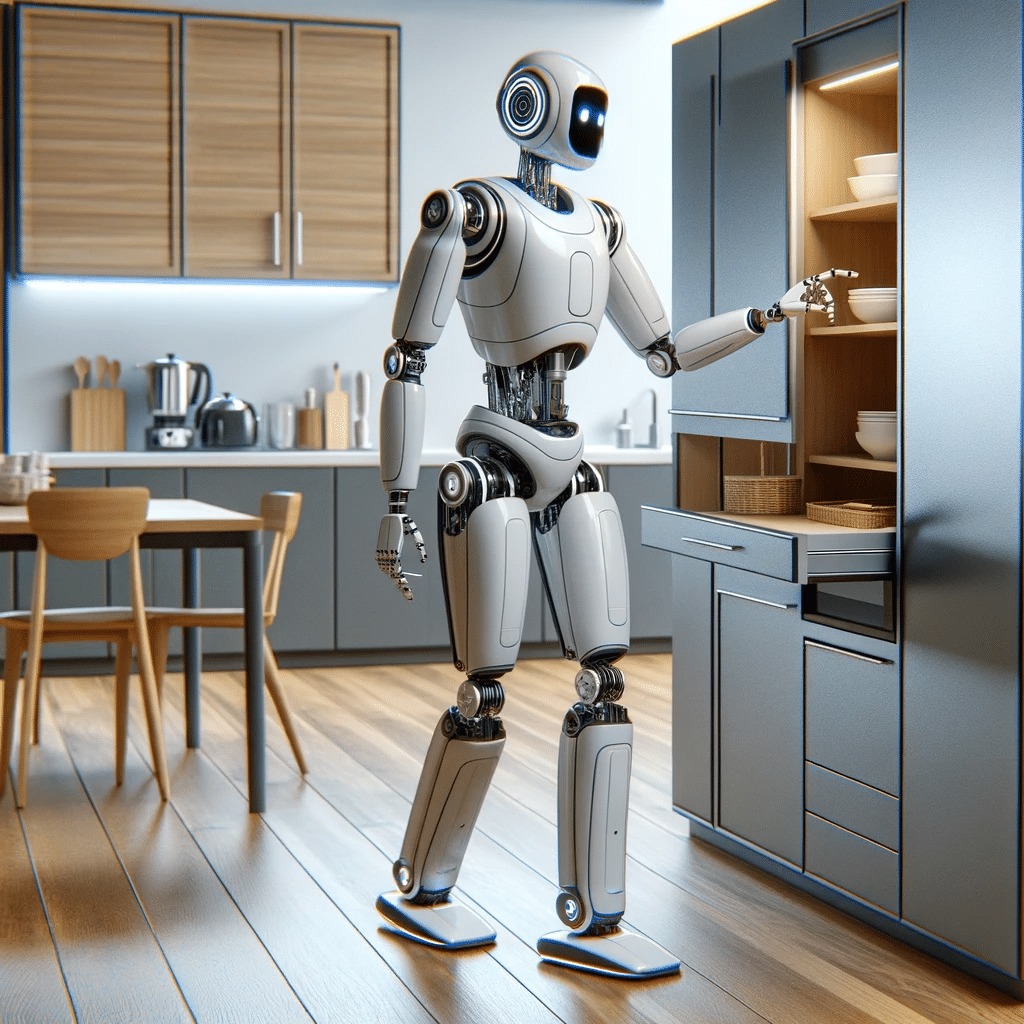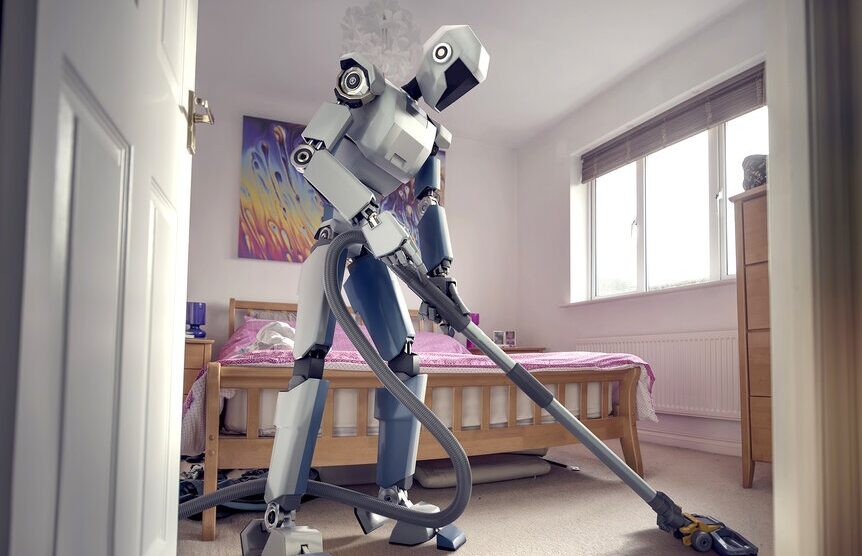The idea of robots taking over our household chores has long been a staple of science fiction and futuristic visions. A recent CNET article titled “AI and robots that do your household chores? Dream on, folks” sets out to examine this concept, offering a nuanced look at the current state and future possibilities of AI-powered household assistants. Let’s delve into the complexities of this topic and explore what the near future might actually hold for home automation.

The Headline vs. The Content: A Study in Contrasts
At first glance, the article’s headline suggests a dismissive attitude towards the concept of AI-powered household robots. It seems to imply that such technology is nothing more than a far-fetched dream. However, a closer look at the content reveals a more balanced and nuanced perspective:
- The article acknowledges significant advancements in AI and robotics.
- It explores the potential for future developments in household automation.
- The tone is more cautiously optimistic than the headline might suggest.
This contrast between the headline and the content highlights the complex nature of technological progress. While we may not have fully autonomous robot butlers in the immediate future, the path towards increased household automation is clearly being paved.
Current Challenges in Household Robotics
The article doesn’t shy away from discussing the significant hurdles that still exist in developing truly capable household robots:
1. Complexity of Household Tasks
- Tasks like laundry folding require intricate movements and spatial awareness that are challenging for robots to master.
- Navigating and understanding messy, unpredictable home environments poses significant AI challenges.
2. Cost Considerations
- Development of advanced household robots requires substantial investment in research and technology.
- Production costs for such complex machines would likely make them prohibitively expensive for average consumers, at least initially.
These challenges help explain why we haven’t seen widespread adoption of general-purpose household robots. They underscore the gap between our aspirations for home automation and the current technological reality.
Realistic Near-Future Possibilities
While fully autonomous robot housekeepers may still be a distant dream, the article explores more immediately feasible advancements in home automation:
1. Enhanced Smart Vacuums
- Current robot vacuums could evolve to handle more complex cleaning tasks.
- Improved navigation and object recognition could allow for more thorough and targeted cleaning.
2. Advanced Voice Assistants
- AI-powered voice assistants could become more sophisticated in managing household tasks.
- Potential capabilities include scheduling cleaning services, managing deliveries, and coordinating various smart home devices.
These advancements represent a more gradual and practical approach to household automation. They build upon existing technologies, making them more likely to be realized in the near term.
The Path Forward: Incremental Progress and Specialization
The article’s content suggests that the future of household automation may lie in incremental improvements and specialized devices rather than all-purpose robots:
- Task-Specific Robots: We may see the development of robots designed for specific, complex tasks like folding laundry or loading dishwashers.
- Improved AI Integration: Existing smart home devices could become more interconnected and intelligent, creating a more cohesive automated home environment.
- Human-AI Collaboration: Rather than fully autonomous robots, we might see the rise of AI systems that work alongside humans, assisting and optimizing household management.
This approach acknowledges the complexity of creating truly autonomous household robots while still offering pathways to reduce the burden of household chores through technology.
Ethical and Societal Considerations
As we contemplate the future of household automation, it’s important to consider broader implications:
- Privacy Concerns: More advanced home automation systems could raise questions about data collection and privacy within our most personal spaces.
- Economic Impact: The development of household robots could have significant effects on industries related to home maintenance and cleaning services.
- Accessibility: As with many new technologies, there’s a risk that advanced home automation could initially be available only to those with higher incomes, potentially exacerbating societal inequalities.
These considerations underscore the need for thoughtful development and implementation of household automation technologies.
Conclusion: Cautious Optimism for a More Automated Future
The CNET article, despite its skeptical headline, ultimately presents a picture of cautious optimism regarding the future of AI-powered household assistance. While we may not see fully autonomous robot maids in the immediate future, significant progress is being made in the field of home automation.
Key takeaways include:
- The gap between current technology and science fiction visions of household robots remains substantial.
- Near-term advancements are more likely to come in the form of improved specialized devices and smarter home management systems.
- The path to more automated households will likely be gradual, building upon and improving existing technologies.
For consumers, this means that while we shouldn’t expect robot butlers to arrive at our doors anytime soon, we can look forward to increasingly sophisticated tools to help manage our households. The future of home automation may not be as dramatic as science fiction has portrayed, but it promises to be no less transformative in its own, more subtle way.
As we move forward, it will be crucial to balance our enthusiasm for technological advancement with careful consideration of its broader implications. The dream of offloading our household chores to robots may still be just that – a dream – but the reality of increasingly intelligent and helpful home technologies is very much within our grasp.










Add Comment